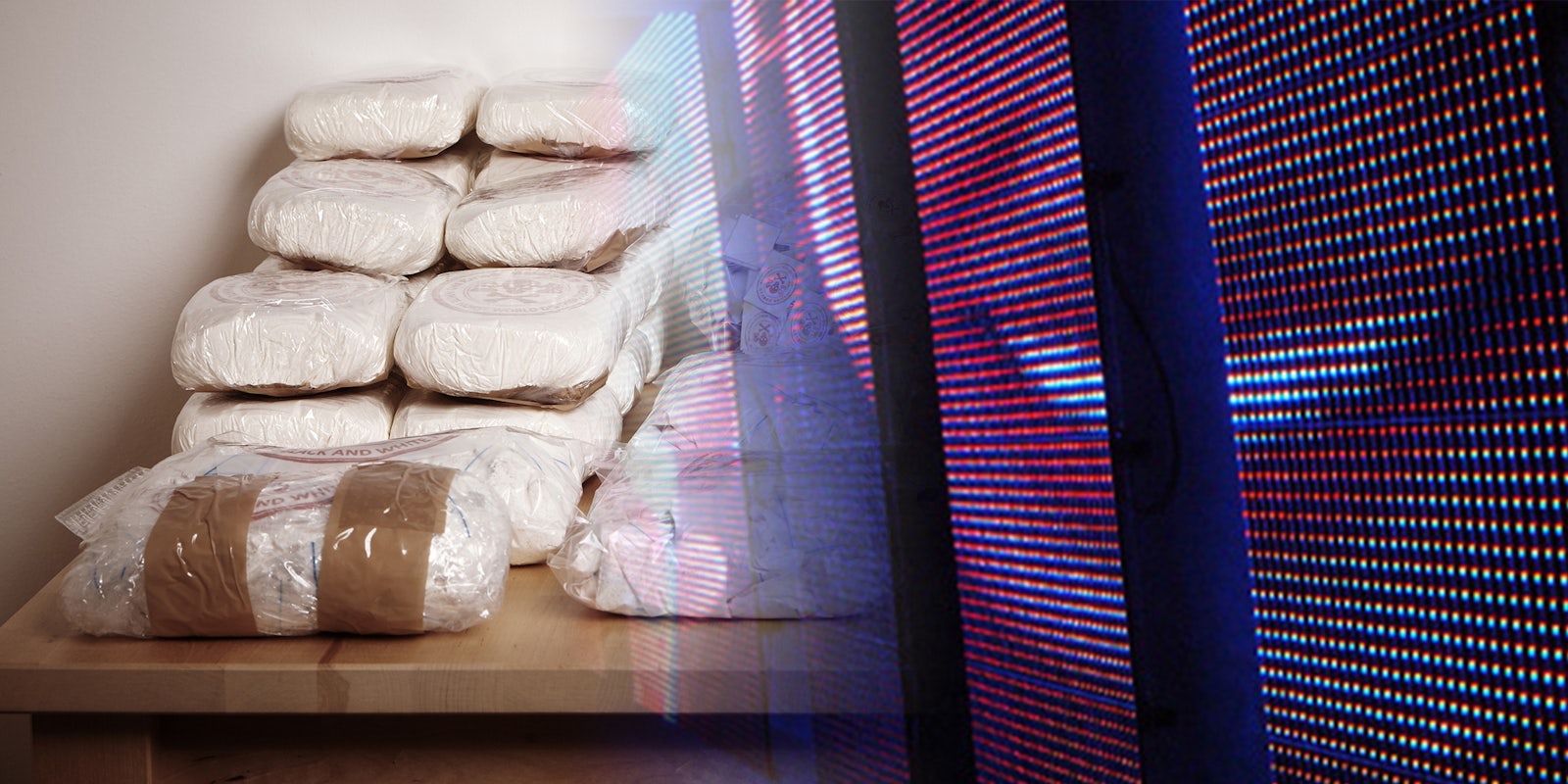In a meeting with his favorite money launderer of the moment, Alejandro Javier Rodriguez-Jimenez laid down the new rules: All communications relating to the cartel they worked for would now go through encrypted apps, and emails would be saved to draft in a shared account.
The “save to draft” strategy is an old one by internet standards. You and a partner share the password to an email account; instead of sending out emails to be noticed and intercepted, you hide them quietly in the draft folder. It’s well-known to law enforcement and considered amateurish and insecure. The strategy was most famously used by former CIA Director David Petraeus and Paula Broadwell, his biographer and mistress, but it’s been in wide usage for over a decade at least since Al Qaeda popularized the trick in the early 2000s.
Encryption is a bit more modern. Cryptography itself is ancient, of course, but the kind of cutting-edge encryption that makes it easy to protect texts, photos, and calls has really only emerged in the wake of Edward Snowden’s NSA leaks.
Those efforts were meant to protect the secret conversations between them. It would ultimately prove too little, too late, as Jimenez would be arrested not long after that meeting. Newly unsealed indictments against him and the high-level leaders of the organization he worked for, however, shed rare light on how modern drug dealers leverage the internet and encryption to their benefit.
Jimenez worked for an international drug-smuggling and money-laundering operation called “La Corporacion” (“The Corporation”). It moved hundreds of kilograms of narcotics across borders and oceans in just a few years, laundering hundreds of millions of dollars in the process, according to federal testimony.
The man throned atop La Corporacion was Roberto Ponce-Rocha, but most people referred to him by his nickname, Paco Ulysses. Ulysses is the wanderer of ancient myth, Paco is slang for cocaine paste. Ponce-Rocha has roots in the Beltran-Levya Cartel, a once-powerful Mexican organized crime syndicate that has been obliterated in recent years by rival cartels and law enforcement, though the line between the two can sometimes blur in Mexico.
“The complexity and scale of operations consummated by this money laundering organization are immense.”
After the cataclysms that ended the Beltran-Levya Cartel, Rocha became his own man. He connected closer to Colombian organized crime and established himself deeper in the United States. To help move his money internationally, Rocha created a false-front business anchored in cyberspace, attempting to give an air of legitimacy to what’s been described by prosecutors as a “shadow banking system.”
“The complexity and scale of operations consummated by this money laundering organization are immense—hundreds of millions of drug dollars remitted across six continents on behalf of the World’s most violent drug cartels,” Drug Enforcement Agency Special Agent in Charge John S. Comer said in a statement in late September.
Jimenez’s top job, according to police, was to run a false front business, “Vegas LED Screens,” for Rocha. With a South Las Vegas storefront and a still-functional website, the traffickers pretended to sell high-quality and high-cost LED screens. It was a carefully constructed shipping operation that touched every corner of America and well beyond.
“Ponce-Rocha used various methods including commercial shipments, drivers and couriers to move narcotics around the world and, in particular, to import narcotics into the United States,” David Behar, a Special Agent with the DEA, told a judge last month.
When contacted for comment, a man who picked up the phone for Vegas LED Screens said he would be busy working in Mexico for the next several weeks.
The smoke and mirrors started with the false-front business and extended to a loosely encoded language, wherein every utterance about the screens would be translated to its true meaning.
Text messages between Rocha and Jimenez show just how lazy the coded language became. In one September 2014 exchange, Rocha explained a new deal to Jimenez ostensibly involving smuggling “screens” past border scanners. Rocha mentioned that they’ve done this sort of operation many times before, only this time it would be more sophisticated than ever: “They cannot see it, even with a scanner.”
One wonders what Rocha thought he was hiding in this message:
“The business deal is like this. The screen out from here, No taxes are paid at arrival over there because they cannot see it, even with a scanner. The arrival over there does not incur expenses. It is more or less the type of television that we tried sending between your friend and I to your friend’s house; the one that arrived but without results. It is very similar but much more professional. With the difference that a screen with 250 modules can be sent from here, without it being noticed. Hopefully, you will be able to contact your friend.”
It took two years of poorly coded language before the group made an effort to move to more secure forms of communication.
Few, if any, inside La Corporacion understood just how deep the rot went at that point. Their phones had been bugged, their emails were being read, their vehicles were being watched: La Corporacion was thoroughly infiltrated by “the uglies,” as the smugglers called police informants and undercovers, according to transcripts of conversations recorded secretly by informants.
Encryption has long been utilized by Latin American cartels.
Toward the end, in early 2016, police testimony shows they turned to encryption.
The problem of organized criminals using encryption has been the subject of fierce debate in recent years. FBI Director James Comey calls the spread of encryption the “Going Dark” problem because it creates massive black holes and blind spots for law enforcement.
Encryption has long been utilized by Latin American cartels. For a decade, Mexican cartels have built and maintained an encrypted radio network that’s used to cheaply, effectively, and secretly communicate throughout the country. El Chapo, the notorious Mexican drug lord currently sitting in a Mexican prison, used encryption before his capture.
Now, encrypted apps on smartphones are making secure communications available to millions of people. Law enforcement agencies around the world, including in the U.S., argue that the technology is making police work harder. That’s led to a years-long debate about how to deal with the questions encryption poses for privacy, security, and freedom on the internet.
In the case of La Corporacion, years of police work and infiltration beat any attempt at utilizing encrypted communications before it had a chance to get off the ground.
When Jimenez sat down to his meeting with the money launderer and told him the new security protocol, the drug lord was unknowingly speaking to an undercover DEA agent. Even the person who introduced Jimenez to that so-called money launderer was himself a DEA informant, according to an indictment against Jimenez.
Rocha and Jimenez headline two federal indictments against a total of nine leaders of La Corporacion. Charges include narcotics smuggling and money laundering. They each face the potential of spending over 20 years in prison. Rocha is currently in Colombia fighting an extradition attempt by the United States.



